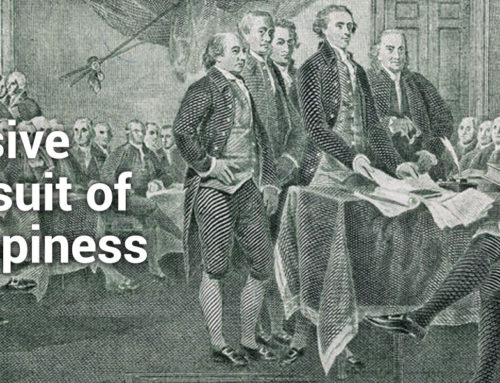In previous blogs (here and here), I have presented a comprehensive model of leadership that I have labeled The Performance Trilogy®. The framework describes the three fundamental processes that must be managed; strategy, execution, and leadership development and the three leadership roles needed for each process; leading, managing and coaching. Leading each of the three processes of the Performance Trilogy® requires very different attributes (i.e. talent and skills). The three most important attributes needed to successfully lead the strategy process are imagination, courage and persuasiveness. The three most important attributes needed to successfully manage the execution process are conscientiousness, productivity and discernment. The three most important attributes needed to successfully coach the leadership development process are integrity, empathy, and teaching skills. These nine attributes are universal and essential for sustainable success in any endeavor you pursue. In this blog we will explore the first of these coaching attributes required during the development process, integrity.
Integrity – Behavior that is genuine in words and actions
Integrity is the foundation upon which all trust is based. We may respect and admire successful leaders but only trust those leaders who are honest in what they say and consistent in how they act. While no one that I am aware of is a saint, there are several leaders who I had the fortune of working for who embraced a set of values and were very consistent in practicing those values. You always knew where they stood on most issues and could depend on their consistency. I may not have always agreed with their decisions but always respected the fact that they were true to their business ethics. An excellent source on the role of integrity in building trust can be found in Trust in the Balance, by Robert Bruce Shaw.
Consistency is an important element in building trust. When we observe inconsistency in what someone says or how they behave over time and different situations, we tend to question whether their motives are pure. I have always believed that one should never attribute malevolence to anyone when their actions can be more readily explained by incompetence or inattention. Unfortunately, it is human nature to mistrust those who do not act consistently. “Walking the talk” should not be just a slogan, but a way of life.
Consistency in sharing information. Do you willingly share information, both good and bad, that is important to your team? Are you honest with them if you do not have the answers? Do you let them know if you need to withhold information and when it can be released? If not, then the rumor mill becomes the primary source of information, often misguided, and mistrust builds among your team. Consistency has many facets.
Walking the talk – As I just mentioned, walking the talk is not a slogan but a first principle in demonstrating integrity. The reputation of a leader is highly dependent on telling the truth, not just what people want to hear. We tend to trust leaders who do what they say they are going to do and if unsuccessful, take responsibility. If you don’t follow through on your word, you most assuredly will develop a reputation of someone who cannot be trusted. While we live in a more complex world today, I can’t help but think of my father, who never signed a bill of sale or contract. His mantra was, “If my word and handshake are not good enough for you, we shouldn’t do business together.”
Consistency in location and time – Sharing information is not a one-time event. We are often sharing information to different groups, at different locations and times. The classic example is to listen to the stump speech of most national politicians as they traverse the country, with messages tailored to procure votes. It’s no wonder that politicians have one of the lowest trust ratings of any profession. Staff become very suspicious if you change your message based on your audience. Also, changing your message over time and shifting positions create mistrust. Staff looks for a consistent sense of direction from their leaders. When changing one’s message, great care needs to be taken in explaining the reasons for the change and the anticipated consequences.
Lest this all seems too esoteric, in his book, The Speed of Trust, Steven Covey points out the important competitive business advantages in trusting organizations.
Graffeo and Associates is an organization committed to improving the quality of leadership in science and technology (S&T). It was formed in 2008 around the expertise of Dr. Tony Graffeo, a senior executive from Arthur D. Little and Battelle Memorial Institute. Dr. Graffeo has consulted with leading research institutions in the United States, Europe, Latin America and the Middle East, and has created a codified system of leadership development centered around the principles of the Performance Trilogy® which he has taught throughout the world. He is currently a professor at Northeastern University teaching Professional Masters entrepreneurship and leadership courses. His new book, titled “Leading Science & Technology-Based Organizations: Mastering the Fundamentals of Personal, Managerial, and Executive Leadership” will be published in 2018.




Leave A Comment